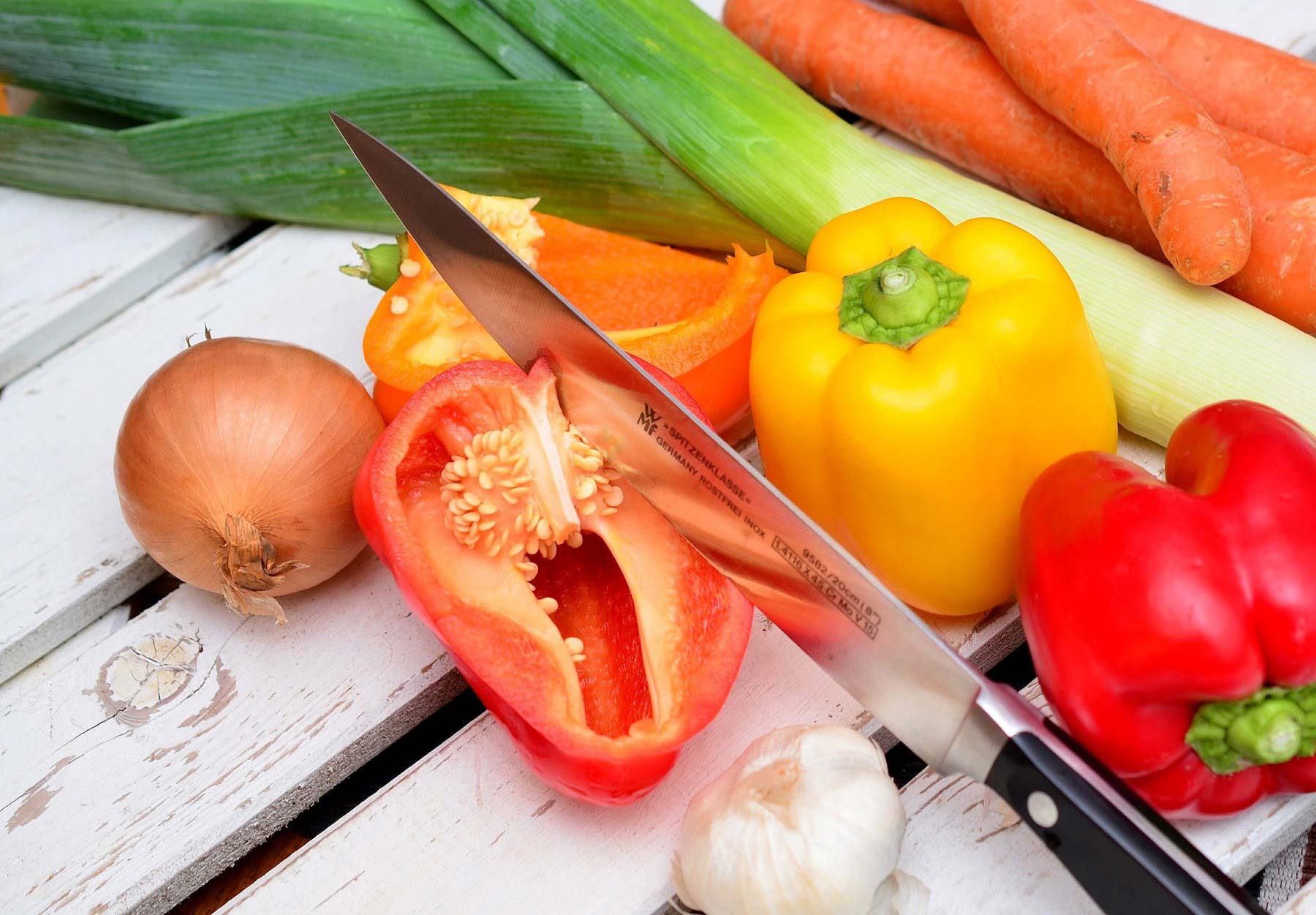What we eat matters, not just to our physical health, but also to our self-esteem, how we feel in ourselves and about ourselves. When we treat our bodies with love and respect—by eating healthy, nutritious foods—we are giving ourselves the very best of gifts. They can make us feel great inside and out, and boost our self-esteem along the way.
What Is Self-esteem and Self-confidence?
Self-esteem refers to our overall sense of self worth, and how much we value—and even like— ourselves. It’s how we think and feel about ourselves.
Self-confidence is when we believe in our abilities and ideas, and accept ourselves just the way we are, knowing that we are enough. When we are confident, our self-esteem rises; when our self-esteem is good our confidence is likely to soar.
Does Your Body Image Have an Impact on Your Self-esteem?
We all know it does though of course we wish that society was kinder and that we were not judged—or made to judge ourselves—purely on the way we look.
When we don’t like our bodies, our self-esteem can plummet. At its worst, we may experience depression, trauma, and self-hatred, with self-harm, eating disorders, and social isolation among the most serious outcomes. This can become too much to handle alone, and professional help may be needed.
How do Diets Affect Self-confidence?
Traditional weight-loss dieting works for a few people but for most, the effects are short-lived, as all the triggers and patterns that caused the weight gain in the first place remain unchallenged.
Dieting is rarely a pleasure. We may go hungry, get cranky, and obsess over numbers. We may lose faith and blame our bodies all over again. Diets often feel like a punishment, and unsurprisingly perhaps are known to cause an increase in body dissatisfaction. They are also a strong predictor of future weight gain. In short, diets don’t really work.
But choosing whole food plant-based foods is nothing to do with dieting. It is about making positive choices that honor ourselves and nurture our self-worth.
How Does Food Affect Your Confidence?
What we eat affects both our physical and mental health. If we fuel our bodies with the foods it needs—while avoiding the foods that make us feel sick or sluggish—we start to feel great. With increased vitality, our mood lifts. This is nothing to do with dieting. Choosing whole food plant-based foods is not about denial! It is about abundance. It is about embracing all those delicious natural foods that will lift us up, physically and mentally.
When we come to understand what optimal health really feels like, we may feel entirely different in ourselves and about ourselves. And that may mean that our confidence grows and grows.
How Does Healthy Eating Improve Self-esteem?
First, the act of putting good food into our bodies shows how much we value them. Our bodies do incredible service for us. Fueling them with the nutrients they need, and not harming them with the foods they don’t, shows that we value them, and this act of self-love alone can raise self-esteem.
But eating well also has a physical effect on the chemicals in our brains, and that helps us feel better about ourselves, too. Plus, when we eat well, long-term health issues may finally melt away—things like headaches, bad skin, brittle hair and nails, tiredness, and lethargy. New vegans often report these changes, and it spurs them on. They also often report better sleep, and that shifts their contentment up another notch. Eating plant-based can even end or reduce depression, and that can make all the difference in the world.
When our bodies function to the best of their ability (and optimal health and physical ability is obviously different for everyone), we can reach our own potential. We may even find the confidence to try something new, and nothing improves self-esteem like completing a successful challenge—whether that is reaching the summit of a mountain or walking again after an injury. Whatever our goal, we need the best fuel to reach our own potential.
Cooking Can Be Beneficial
Opening a pack of cookies takes five seconds max. Cooking a nutrient-rich meal takes a little longer. But spending time on making a wholesome meal is an investment in our health. And it sends an important message to our brains: you are worth this time and investment.
Cooking can also be the start of an exciting adventure! Finding new plant-based ingredients and discovering delicious cuisines and recipes can lead to a positive new relationship with food.
We can develop our cooking skills, create a repertoire of incredible meals, and at the same time, nurture our bodies and minds with the very best—and tastiest—of fuels.
Eating Habits Improve Self-Esteem
Food is not just fuel, it is a pleasure. It brings family and friends together, binds communities, and is at the center of many traditions. When we focus on the positives of food instead of using it to punish ourselves, or as a crutch when we feel down, food can serve us in so many ways. So, make each meal special. Light a candle or say a few words of gratitude. A little ceremony reminds us that this is important.
Food For Boosting Self-confidence and Self-esteem
Before we get to the good guys—the foods that are great for our bodies and our own sense of self-worth—we should consider some of the foods we would do well to avoid. Research suggests that eating sugar, processed meat, fried foods, and high-fat dairy products could be associated with anxiety and depression. Not only are these bad for our mental health, they are bad for our physical health, too.
When we reduce or eliminate these foods from our diets, and load up with delicious, wholesome nuts, seeds, grains, legumes, vegetables, herbs, salads and fruits, our bodies and minds zing.
Antioxidant-Rich Foods
Antioxidants are compounds found in plants that help reduce oxidative stress in the body. This inflammatory stress is caused by unstable molecules (known as free radicals) ‘stealing’ electrons from a stable molecule, thereby setting off a chain reaction that can cause irreversible damage to cells. Free radicals are linked to several diseases and there is growing evidence that they may also be associated with the development of psychiatric disorders. Thankfully, we can combat free radicals with foods that are rich in antioxidants, including broccoli, cantaloupe, carrots, pumpkin, spinach, peaches, sweet potato, blueberries, kiwi fruits, oranges, bell peppers, strawberries, tomatoes, nuts, seeds, and avocado.
Calcium
Calcium isn’t just for strong teeth and bones, it plays an important part in regulating mood, particularly for women. Choose calcium-set tofu, fortified plant milks and yogurts, green leafy vegetables, pulses, sesame seeds and tahini, and dried fruit. Some flours are fortified with calcium, making whole grain toast for breakfast a great way to start the day.
Iron-Rich Foods
There is no doubt that iron deficiency can have a significant impact on mood. It is linked to poor concentration, anxiety, and depression, so eating iron-rich foods can make a big difference. Choose from lentils, garbanzo beans, beans, tofu, cashew nuts, chia seeds, ground linseed, hemp seeds, pumpkin seeds, kale, dried apricots and figs, raisins, quinoa, and fortified breakfast cereals.
Omega 3 Fatty Acids
There are three main omega 3 fatty acids and two of them—EPA and DHA—are thought to have the most potential to improve mood. The third fatty acid, ALA, is converted into these two acids in the body, so it is imperative we get a good supply of ALA in our diets. To do that, we should eat plenty of chia, flax and hemp seeds, walnuts, Brussels sprouts, edamame, and beans.
Selenium
This essential trace element is vital for the proper functioning of the brain and nervous system. Research has not been fully consistent although overall selenium deficiency seems to correlate with depressed mood. Boosting selenium through foods is easy—try Brazil nuts, whole grains, sunflower seeds, baked beans, mushrooms, oatmeal, spinach, lentils, cashews, and bananas.
Tryptophan
Many of the brain’s chemical messengers are made from amino acids, the building blocks of proteins. Dopamine, for example, is made from the amino acid tyrosine, and serotonin is made from tryptophan. A lack can lead to low mood but it can easily be added into a balanced healthy diet. Tryptophan is found in soybeans, wheatgerm, sesame seeds, tahini, flaxseed, and nuts.
Vitamin B
According to a study reported in Neuropsychobiology, supplementation of nine vitamins in large quantities for 12 months, improved mood in both men and women. This mood improvement was particularly associated with increased vitamin B2 and B6. Vitamin B2 (riboflavin) can be found in yeast extract, nutritional yeast, quinoa, muesli, fortified breakfast cereals, fortified soy milk, avocado, almonds, wild rice, mushrooms and snow peas . Vitamin B6 can be found in sweet potatoes, potatoes, avocados, bananas, pistachio nuts, garbanzo beans, squash, quinoa, sunflower seeds, sesame seeds, Brussels sprouts, and spring greens.
Vitamin D
Research suggests that vitamin D affects the levels of brain chemicals, including serotonin, which has a strong effect on our mood. In 2019, researchers conducted an analysis of four trials involving 948 people, and found the vitamin was able to positively affect outcomes of depression. Our bodies can make vitamin D from exposure to the sun, but in winter and for those who do not go outside regularly, it is essential to get sufficient in the diet. Mushrooms are a good source, and plant milks are often fortified with it, but for many it is wise to supplement.
What Can Damage Your Self-esteem?
There can be any number of factors that damage self-esteem—from an unhappy relationship to an unfulfilling job or physical illness. It could be that not achieving academic or professional success has damaged your feelings of self-worth, or it could be that you are struggling with mental health and this has led you to have a poorer view of yourself.
You may have lived with this since childhood or it could appear quite suddenly as an adult, but whatever its source, there are things we can try that could help.
Conclusion: How Can You Rebuild Your Self Esteem
What happens to us and how we deal with it are two separate things. We cannot always control the former but we do have a degree of control over the latter. Meditation often helps people see the difference between thoughts or feelings and ourselves. Through meditation we can understand that the negative thoughts we may have about ourselves are not actually part of us, and that we can in time let them go.
We can all be kinder to ourselves. We can step away from people who make us feel bad, and embrace those relationships that bolster us and make us feel great.
We can search for joy and do things that make us laugh. We can boost the feel-good chemicals in our brains by moving joyfully and yes, dancing around the kitchen counts! Any exercise can help boost our brain chemicals and lift our mood so try to build into your lives something that you enjoy.
And we can give ourselves the most valuable gift of all. We can take the time and effort to feed ourselves with wholesome foods that will lift our mood and perfectly fuel our bodies. We could start to feel better, sleep better, feel more positive, more empowered, more confident.
Great health—both physical and mental—starts with a single step, and you can begin your journey by checking out our 31 favorite plant-based recipes. Sign up here to receive yours for free.







